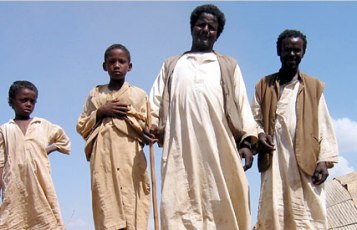Eastern Sudan “on verge of famine” due to ban on aid groups
June 3, 2012 (KHARTOUM) – A political group from eastern Sudan has warned that the government’s decision to suspend activities of seven foreign aid groups is rendering the already impoverished region on “the verge of famine.”

The seven groups targeted by the decision are Accord, Goal, Triangle, Save the Children, Plan Sudan, Malo, a British demining group, and a Japanese aid group.
However, Sudanese officials gave conflicting statements on the fate that awaits these groups, with one saying he expects them to be expelled and another saying they have been given a one-month period to correct their situation.
The Beja Congress Party (BCP), an eastern Sudanese political group, on Sunday criticized the suspension and cast doubts on the reasons that the authorities used to justify it.
BCP’s political secretary, Salah Barkwayn, told the daily Sudanese newspaper Al-Sahafah that the decision was “hasty and unfortunate.” He added that he believes it was due to other reasons which should be disclosed.
Sudanese authorities are deeply suspicious of foreign aid groups. In July 2009, Khartoum expelled 13 international aid organizations from the country’s western region of Darfur on the accusation of spying for the International Criminal Court (ICC) following its issuance of an arrest warrant against President Al-Bashir.
Khartoum has also been blocking aid groups from accessing rebel-controlled areas in the country’s southern state of South Kordofan, citing concerns that these groups would use their aid to the benefit of the insurgents.
Barkwayn said that the presence of these groups in eastern Sudan is a “necessity” given the already deteriorating situation in the region. He pointed out that the price of sorghum has increased to 300 Sudanese pounds [around 70 US dollars] per sack in various parts of the region.
“The decision comes at a time when the government is unable to fight poverty and famine from which the people of the east suffer, making them on the verge of famine” he warned.
The BCP official urged the authorities to sit down and discuss the situation with these groups instead of expelling them.
Eastern Sudan is one of the least developed regions in the country. Drought and illegal migration from neighboring Eritrea have radically altered ways of living in the region and attracted humanitarian activities.
(ST)
